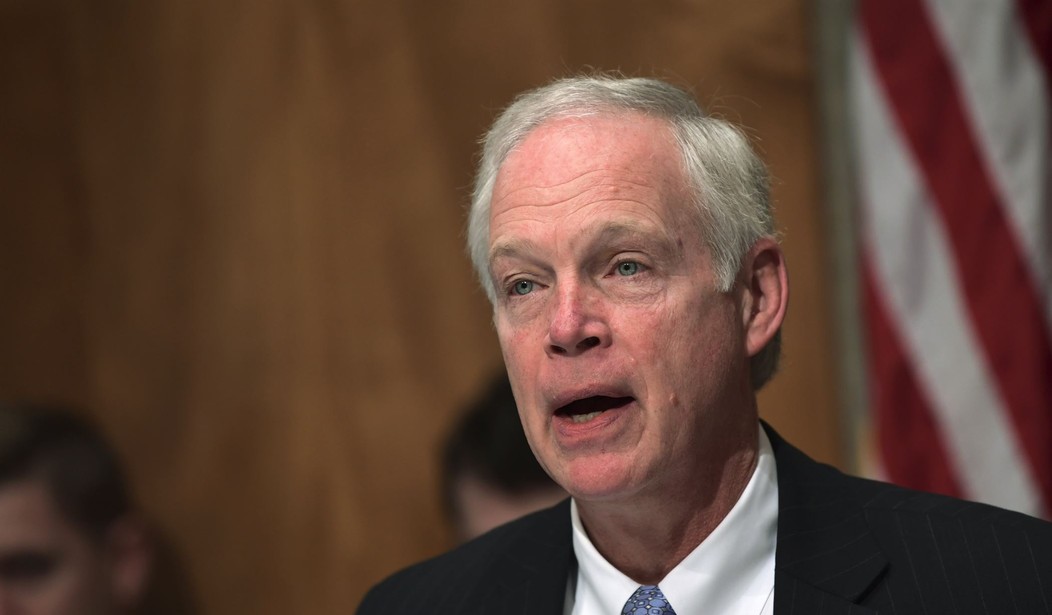Pennsylvania U.S. Sen. Bob Casey was supposed to attend a fundraiser in Pittsburgh last Friday. Instead, the Scranton Democrat joined his Lehigh Valley Republican U.S. Senate colleague Pat Toomey for the somber memorial service of Christopher David Hill, a U.S. deputy marshal who was killed in the line of duty.
Hill was an Army veteran and an 11-year veteran of the U.S. Marshals Service. When executing a warrant for the arrest of Shayla Lynette Towles Pierce, who was wanted by the Harrisburg police for terroristic threat offenses, 31-year-old Kevin Sturgis of Philadelphia opened fire on the officers from the second floor of Pierce's home.
During last week's brief but politically charged government shutdown, Casey was passionate in his opposition to Republicans, vowing to not "genuflect" to their demands. Never once, though, did he attack Toomey personally.
For his part, Toomey has never once attacked Casey personally, even though the Scranton Democrat is up for re-election this year and potentially vulnerable against Republican Rep. Lou Barletta.
In fact, when Toomey was in a tight race against Democrat Katie McGinty in 2016, it was hard to find one instance in which Casey blasted Toomey when campaigning for McGinty or Hillary Clinton.
This is a notable relationship.
Casey and Toomey are one of only 12 pairs of U.S. senators who represent the same state but come from opposite parties. For the most part, they have adopted a no-fire rule against each other, even during election-year cycles.
The opposite-party pairs include Ohio's Republican Sen. Rob Portman and Democratic Sen. Sherrod Brown, Colorado's Republican Sen. Cory Gardner and Democratic Sen. Michael Bennet, Florida's Republican Sen. Marco Rubio and Democratic Sen. Bill Nelson, West Virginia's Republican Sen. Shelley Moore Capito and Democratic Sen. Joe Manchin, and Wisconsin's Republican Sen. Ron Johnson and Democratic Sen. Tammy Baldwin.
Recommended
While all 12 sets sort of cancel one another out on big votes, typically splitting their votes along party lines, they all do tend to work well together in nominating and confirming federal district-court nominees, something Casey and Toomey have excelled at, no matter which person is in the minority at the time.
Of all of them, the only pair who does not hold their fire is Wisconsin's Johnson and Baldwin.
Case in point: Last week during the shutdown, not only did Johnson fire off a statement saying, "Unfortunately, Senator Baldwin and 43 of her colleagues decided to play politics with people's lives by refusing to fund health care for vulnerable children, support for the finest among us serving in the military, and the rest of government." He also jabbed at her on his official Senate Twitter account several times.
And don't think the favor goes unmet. Baldwin consistently returns fire.
Baldwin and Casey are two of several incumbent Democratic U.S. senators up for re-election this year in split states that went for Trump in 2016, including West Virginia, Ohio, Pennsylvania and Montana.
To date, Baldwin is the only one personally taking heat from her colleague. The question is: Why? All of the other pairs nearly always cancel one another out on partisan votes but always find a way to work together on noncontroversial matters, such as federal regulations, securing funding for large military and federal installations in their state, and sometimes handling constituent visits by hosting joint breakfasts for larger groups who visit Washington.
So, what makes Johnson and Baldwin's relationship so brittle? Will that help in an election year? If so, whom will it help?
Part of their disconnect is that Baldwin is from Madison, a very political town, and she has been involved in politics since she was in law school. Johnson was a very successful businessman before running for office. He's not from Madison, and if you know anything about Wisconsin, that says everything.
Additionally, she is very far left and he is far right. She won the Wisconsin Senate seat over former Gov. Tommy Thompson by 4 percentage points in 2012 after a nasty, expensive race.
Wisconsin is a changing state politically, and Baldwin is one of only two statewide Democrats currently in office. Republicans hold the state house, the state Senate, the majority in the congressional delegation and every swing congressional seat.
Despite Baldwin's left leanings, she did take a scathing hit from MoveOn.org; the liberal group berated her for her vote last Monday to reopen the federal government without including any deal to protect "Dreamers," the young immigrants who would have received protections under the never-passed DREAM Act.
And Johnson has taken the lead to keep Wisconsin Republicans united ahead of the August Republican primary contest between businessman Kevin Nicholson and state Sen. Leah Vukmir. Johnson has pushed both candidates to sign a unity pledge.
Despite heading into the second year of his second term, Johnson has always done things outside the norm of political procedures because he has never shed his outsider persona. He is still that business guy who happened to become a U.S. senator.
This is one of the Senate races going under the radar of the national press, but Wisconsin Republicans should not be taken for granted. In the past eight years, they have fought back and won races they, in theory, had no business winning in the first place. And both Johnson and Scott Walker, the GOP governor who is seeking his third term, have built formidable grass-roots operations ahead of both Walker's race and whoever ends up becoming Baldwin's challenger.
Look for Johnson to have a lot to say ahead of this race -- something you won't likely see from his other Republican colleagues in Montana, West Virginia and Ohio. But that's the norm for Johnson, who always works outside the system -- and typically prevails.

























Join the conversation as a VIP Member